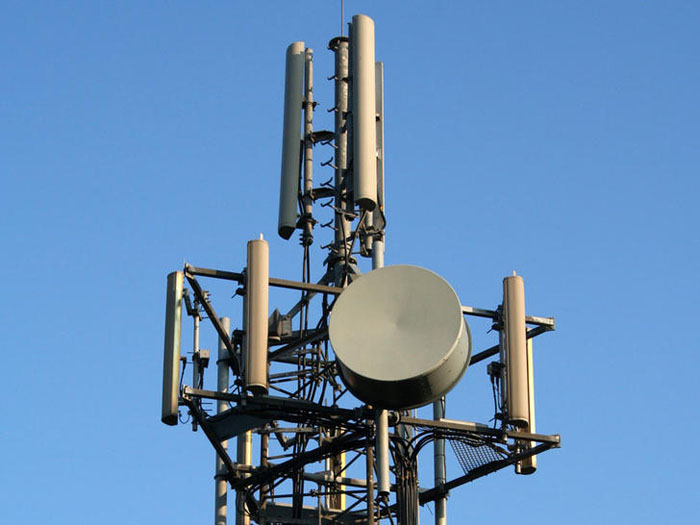Why can't the networks keep our signal safe?
Can we blame Anonymous for this one too?

Sign up for breaking news, reviews, opinion, top tech deals, and more.
You are now subscribed
Your newsletter sign-up was successful
There are some things in life we bank on - while a stable mobile signal isn't always one of them, we at least expect the networks to be able to transmit it without an issue.
Then, a few months ago, parts of the Vodafone network go down. 'It's a conspiracy!' the Twitterverse cries, convinced it's a ploy to make more money from not letting its customers call each other and somehow not paying more UK taxes.
Then Vodafone comes out with an explanation straight from the 1980's: Someone stole bits of our network.
Simple as that, apparently. Thieves got in, stole some bits, and then the network went dead along the M4 corridor (probably with some grand 'powering off' sound and confused yet panicky looks reserved for the moment when someone pulls a big switch in Doctor Who.")
And we're sure the competitors laughed in their plush bubbly, fruity, numerical boardrooms, safe in the knowledge something so backward could never happen to them.
They took WHAT?
So you can imagine the faces of the O2 PR team this morning when they walked in to find that the same thing had happened to their network. 'Ohhhhh.....crap'.
Sign up for breaking news, reviews, opinion, top tech deals, and more.
Seems the same thing has happened again - according to the official blog, "There has been theft and vandalism at one of our operations sites in East London and, as a result, customers in East London, North London, Kent and Sussex may be experiencing problems making or receiving calls, texts or data."
Seriously? Again? We're all for the 'laugh at our competitors when they get it wrong' scenarios (remember when Vodafone came top of an O2 speed test?) but this affects people who rely on a service day in, day out - so it's not acceptable to simply say 'someone broke in'.
We know that all the networks pay millions each day making sure the technology is able to stand up to the rigorous use an ever-expanding and increasingly data-thirsty user base is throwing at them, so why can't they invest in a bloomin' big padlock and some slavering dogs at these key sites?
If the Vodafone incident wasn't a big enough wake up call to the industry, then this should be enough to make the networks realise that it's not enough to just say 'sorry, we got burglarised' - we need faster redundancy systems in place so that if this happens again the networks can at least continue with text and voice.
Otherwise, we're forced to admit the alternative - these attacks are the planned by international mega-thieves (who, according to O2, were both 'well-organised' and 'vandals'... interesting to have both at once) who are stealing crucial bits of the networks to create a hyper-sonic-wave device to wipe the brains of millions and steal our credit cards.
So come on Orange, T-Mobile and Three - make sure you haven't got a sleeping, tubby security guard sitting outside a rickety gate guarding a crucial piece of network machinery, and make sure that on top of having incrementally faster data speeds we actually get a network that, you know, actually works.

Gareth has been part of the consumer technology world in a career spanning three decades. He started life as a staff writer on the fledgling TechRadar, and has grew with the site (primarily as phones, tablets and wearables editor) until becoming Global Editor in Chief in 2018. Gareth has written over 4,000 articles for TechRadar, has contributed expert insight to a number of other publications, chaired panels on zeitgeist technologies, presented at the Gadget Show Live as well as representing the brand on TV and radio for multiple channels including Sky, BBC, ITV and Al-Jazeera. Passionate about fitness, he can bore anyone rigid about stress management, sleep tracking, heart rate variance as well as bemoaning something about the latest iPhone, Galaxy or OLED TV.